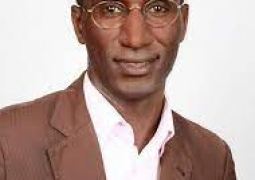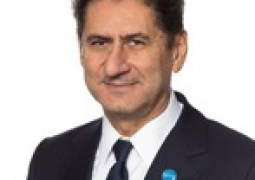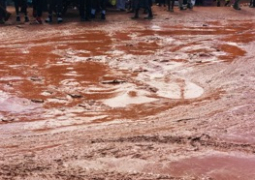Months down the line, the country has so far successfully vaccinated a total of 494,512 persons, representing about a quarter of the total eligible population (over the age of 18 years).
Out of this figure, 179, 923 were vaccinated at fixed centres (health facilities and hospitals), while a total of 314,589 were vaccinated through community outreach exercises.
Based on experience and wider coverage, reaching out to communities seems to be more effective; something the Ministry wants to focus more on to enable the country meet the target goal before the end of the year.
Perhaps, the most common factor deterring many to gemo in for these covid-19 jabs, is vaccine hesitancy and the myths and misinformation associated with these vaccines.
Sedat Fofana is the programme manager on Expanded Programme on Immunization (EPI) at the Ministry of Health.
He first assured all that the vaccines are effective and safe and that the only way to get rid of the virus is through vaccination.
“This is a new virus that has emerged across the globe and there is no way we can control it. The most effective way is through vaccination - take a shot or two of a particular vaccine and you are protected. By this way mankind will be able to control the virus.”
Fofana equally spoke about the Ministry’s new plans to help curb the spread, which he said, is reaching out to people in their bantabas.
This mass exercise, he added, is targeting all those eligible for vaccination and that for the first time, children over the age of 12 years will be vaccinated.
This, he believes, would help curb further spread of the deadly virus, thus increasing vaccination coverage.
“We decided to embark on a monthly mass covid-19 vaccination. Initially, we had problems with our strategies, because we expect the population to go to our health facilities and get vaccinated and that has not been effective. Instead, we are now going out to the communities to bring the vaccines to the doorstep of the population.” he added.
EPI manager recalled that their last mass community vaccination conducted in May 2022 was a successful one, as they were able to vaccinate about 124,000 in just one week.
“So this is what we are going to replicate henceforth. I therefore, appeal to the population to come out and get vaccinated.”
He reminded all that Covid-19 is still alive and causing havoc in communities and thus called on all to these vaccines, which are effective and safe.
This door-to-door campaign, he said, would enable them reach all corners of the country, even those in far flung communities.
He made it clear that there is no way the country can get out of this dilemma without vaccinating 70% of the population.
“It is therefore a moral obligation on all to get vaccinated to save lives and those around them.”
Fofana equally thanked all their formidable partners for their efforts in the fight against the deadly virus.
The current statistics, according to health officials, is not encouraging in view of the severity of the deadly virus.
Felijay Jasseh is from one of the far-flung communities in the Central River Region.
She took the jab last year in Kudang. For her, people in her area are accessing covid-19 vaccines through ‘bantaba’ (village centre) approach.
"Health workers are reaching every community through bantaba approach to ensure that eligible people are vaccinated with COVID-19 vaccines."
Further on the myths and misconceptions surrounding these vaccines, she added: "People's reaction differs when it comes to the vaccine. Many hold the belief that the reason behind the vaccination is to reduce the population size and are with the view that if ladies who are at the child bearing stage get vaccinated with COVID-19, you totally become a barren woman."
She, however, indicated that social media is also a contributing factor as there was a video that went viral that 'if you take the vaccine you will die within three years.'
However, using social mobilisation and communications strategies to counter such misinformation and involving community and religious leaders, according to many, would help a great deal in the fight against the virus.
Bakary Jassey is a resident in one of the settlements in the West Coast Region. He took the jab last year at the Kafuta Health Centre.
For him, after taking the shot, he experienced some side effects during the first days such as dizziness and diarrhea.
But within time, he was able to quickly recover and since then he hasn't complained of any ailments to this hour.
Sulayman Wann is from Changai Toro village, Sami District, Central River Region, North.
According to him, the vaccines are not much readily available in his community compared to the urban settlements.
"This is because people from remote villages spend much of their time not visiting health facilities much more to talk about taking a jab."
He said that even for those who took the jab, some had to travel for over 5 kilometers to reach a health facility to be able to get these vaccines.
"In fact, very few people are willing to do that. In a nutshell, the vaccine is not accessible in my area like that of urban area."
This story was produced with support from Journalists for Human Rights (JHR), in partnership with Kaba Communications and The Point through its Mobilising Media in the Fight COVID-19 (MMFC).
Read Other Articles In Headlines




